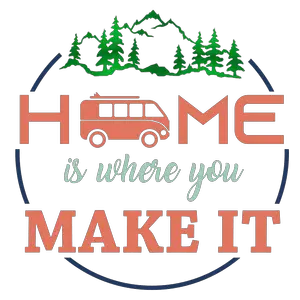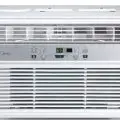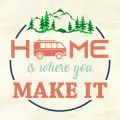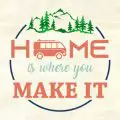Hey! This site is reader-supported and we earn commissions if you purchase products from retailers after clicking on a link from our site.
If you’re a full time RVer, you’re going to need some tools just as you would if you were living in a traditional home. In fact, you may find that you are repairing things more often on the road than when you lived in a condo, apartment, or sticks-n-bricks home. One thing any RVer should understand is that things are always in motion when you’re on the road and it’s not uncommon for those things to come loose or break while traveling.
In this guide, I’ll share with you some of my essential tools, why I travel with them, and whether they will work for you based upon your RV size and storage space. First, we’ll look at hand tools you will need and then we’ll look at what power tools you should also plan on having if you are a full-time RVer.
Hand tools
Screwdrivers
Whether it is the inside or outside of your RV, you are always going to need screwdrivers and having a good quality set of them in various sizes is a must for any RVer regardless of the class of their rig.
Pliers, wire cutters and vice grips
You’ll also need these tools to access plumbing, electrical, and most any mechanical issue in any RV. I recommend looking for a set that comes in a lightweight roll-up canvas case that can be stored in a tool bag and accessed easily when you need them.
Hammers
I like to have good hammers on hand and I recommend Estwing hammers. They’re perfectly balanced, forged in solid steel, and guaranteed for life by the manufacturer. In my toolbox, I have a 12 oz. trim hammer, a standard 16 oz. framing model, and a heavier duty 3 lb. sledge hammer which comes in handy sometimes if you have a flat tire and the rim isn’t being cooperative.
Socket and wrench set
This is another tool you’ll need regardless of the class of your RV. Every RV is pulled down the road by an engine and these tools are crucial to making repairs to engines and numerous other components on all RVs.
Never assume that because your RV is manufactured in the United States that it won’t have any metric bolts, nuts, or fasteners. Often times, RV manufacturers purchase components through foreign suppliers so you should expect a mix of various measurements on these parts and accessories.
A 4-way lug wrench is important to have around for any RVer and especially those that are pulling a trailer. As a rule, trailer tire lugs and those that are on your tow vehicle are a different size so you should have a tool that fits both. In most cases, this wrench also fits into a stabilizing jack fitting on most RVs and if you ever find yourself in a situation where you may need to manually operate your jack stands or change a trailer tire, you’ll be glad to have it along with you.
Hex keys
I highly recommend that you have a set of hand held hex keys on hand to adjust certain fixtures in your RV. You may occasionally encounter a light fixture or a set screw that has a head with a hex setting and I have also seen them used as tensioners on screen doors and windows. They’re an inexpensive tool and you should always have one on hand.
Tape measure
Another item to have on hand is a good tape measure in case you need to make upgrades to your RV or perhaps you might need a tape measure if you are looking for a storage bin to fit in a certain space, you’ll need to be able to measure that area so you can purchase the right size storage bin.
Hacksaw
I also recommend having a quality hacksaw on hand. You will need this tool for cutting things such as plumbing fixtures or rusty bolts where the nut will not turn. You will probably not have to use this tool often, but they don’t take up much space in a tool bag or box and on the offhand when you do need a hacksaw, you’ll be glad you had one on hand.
Spring punch
One of the most important tools I carry with me always is a spring punch. I carry 3-4 of them with me and I spread them out amongst my RV and tow vehicle. Back in the 1980s when I worked as a first responder, I learned the value of carrying this tool on my duty belt.
If you’re a full-time RVer, there’s a good chance that someday you will come across an accident. Usually this accident will already have some police or fire department presence, but you should always be prepared if you happen to be the first on the scene.
If the vehicle is in danger of a fire breaking out or it’s submerged underwater a spring punch can save a life. For example, when you hold a spring punch next to any window that isn’t safety glass such as windshield, and then discharge the punch it will shatter the glass making a rescue of the victim or victims much easier. If you find yourself in a situation where it may be necessary to rescue yourself or others from an underwater scenario there’s a good chance you won’t have the inertia to swing something at a window to create an escape route. A spring punch will save your life and others too.
Power tools
Air compressor
Every RVer should have an oil less air compressor on hand for keeping your tires properly inflated, blowing up things like air beds or water floats and if you follow my columns, you may remember that they are essential for winterizing your RV.
I also use my air compressor to blow out my storage compartments occasionally and since I have a couple of tools like an air nail gun and stapler I use it for that too.
Portable water pump
Another tool I keep on hand is a portable water pump. I cover why this is an important tool to have in a previous column about how to sanitize your RV’s water system.
I also have been at some boondocking sites where water was available but the faucet was older unthreaded type that required me to fill five gallon buckets with water and manually pump them into my freshwater tank.
Cordless tools
I always have a selection of cordless power tools with me because they are good for quick fixes when boondocking or you are someplace on the road that has no electricity.
If you’re in a smaller class B RV, these cordless tools will work for you but I recommend you purchase extra batteries and always purchase the same brand of tools to keep the charging of the batteries universal.
My most important tools here are a circular saw, jig saw, and drill. A good battery operated light is also an excellent addition to any nighttime repairs and that’s another reason to carry extra batteries.
I highly recommend that you take a look at my colleague Lindsey’s article about installing a solar system in an RV and consider installing a system like this on your rig.
Drill bit set
I also recommend that you have a good set of drill bits in case you need to drill holes for additional wiring or even moving a water line. I always standard drill bits as well as spade bits for boring larger holes.
In addition to drill bits you should also have a set of various screw head bits. It’s not uncommon for different RV manufacturers to use screws with other that Philips heads or slotted. I have seen hex screw heads and even star-shaped heads used in the same RVs for different purposes so you should plan ahead for this.
Odds and ends
Saw horses
I go to a lot of van builds when I travel because it’s a great way to meet new people, help out someone new to RVing and earn a few dollars as well. That said, a pair of saw horses are a must for me. When I’m not using them to build something, I set them up outside my RV, put a piece of plywood on them and use them as a makeshift table.
Voltage meter
Another tool I highly recommend having in your toolbox is a multimeter. With this tool you’ll be able to test connections and electrical continuity on such things as electrical sockets, fuses, appliances, and even other basic things that require an electrical supply to function. A good multimeter will cover AC and DC connectivity and is something that every RVer should include in their tool kit.
Tool bag
Now that you have all these tools, you should consider getting a nice durable tool bag or box to keep them in. I prefer a good canvas bag with plenty of exterior pockets.
Other items
You should also consider have these items on hand as well:
- Assorted nails, screws, and nuts and bolts
- Dicor, calk and calking gun
- Duct tape
- Spare fuses
- Scissors
- Multi-purpose tool
- Flashlights
- Utility knives
I know this list is pretty extensive, and you may not need all of the tools, and of course if you’re traveling in a small RV where you have less storage that may be an issue as well. This is simply a partial list of the tools I find I need quite often, but your needs may be different than mine. Just remember, if you’re a full-time RVer, you’re in your home and things always need to be repaired in any home.
Until next time folks, safe travels and I hope to see you out there someday.
Using those tools to troubleshoot? Read these guides on how to identify and fix common issues.





